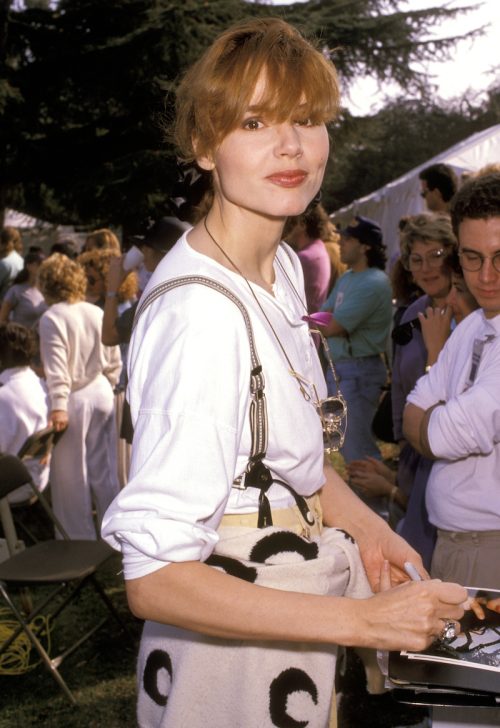Geena Davis‘ new memoir is titled Dying of Politeness, and in it, she writes about instances during her career when she let certain behavior slide because she didn’t want to make a fuss. One of those instances involved a comedy co-star who’s been in the news lately for allegedly making people uncomfortable on other sets. In 1990, Davis starred in the comedy Quick Change alongside Bill Murray, who also co-directed the movie with Howard Franklin. In the book, Davis opens up about the experience and why she didn’t “walk out” and push back against the treatment she received, even though she now wishes she would have. Read on to learn more.
READ THIS NEXT: Actor Defends “Unacceptable Behavior” on Set: “I Have Been Canceled.”
In Dying of Politeness, Davis writes that Murray “insisted” on using a massage device he had in his possession on her when they first met about the film in a hotel suite.
“I said no multiple times, but he wouldn’t relent,” Davis writes (via People). “I would have had to yell at him and cause a scene if I was to get him to give up trying to force me to do it; the other men in the room did nothing to make it stop. I realized with profound sadness that I didn’t yet have the ability to withstand this onslaught—or to simply walk out.”
She writes that, in the end, he “placed the thing on [her] back for a total of about two seconds.”
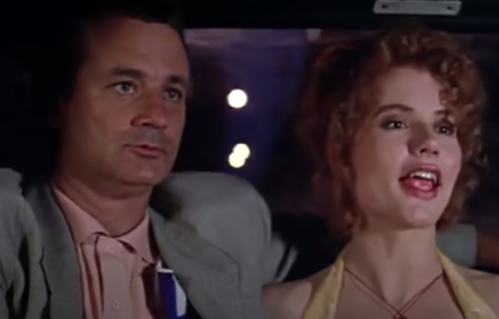
Davis says her issues with Murray didn’t stop there. She also writes in her book that, when they were filming Quick Change, Murray screamed at her for being late to set. She had been waiting on a wardrobe adjustment.
“There were easily more than 300 people there—and Murray was still screaming at me, for all to see and hear,” Davis recalls in her memoir.
For more celebrity news delivered right to your inbox, sign up for our daily newsletter.
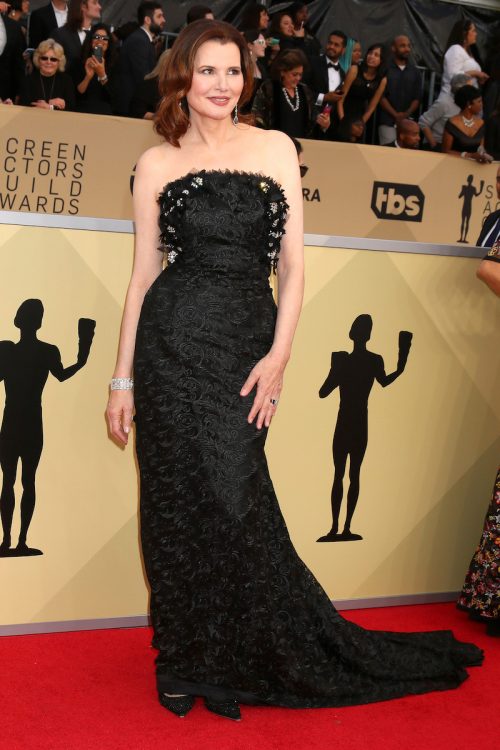
In an interview with British newspaper The Times (via Deadline), Davis shared regrets about how she handled Murray’s treatment of her.
“That was bad,” she said of the situation. “The way he behaved at the first meeting… I should have walked out of that or profoundly defended myself, in which case I wouldn’t have got the part. I could have avoided that treatment if I’d known how to react or what to do during the audition. But, you know, I was so non-confrontational that I just didn’t.”
The Times interviewer told Davis that it sounded as though she was blaming herself rather than Murray. Davis responded, “Ha. Point taken. There’s no point in regretting things, and yet, here I was regretting. And yes, exactly, it wasn’t my fault.”
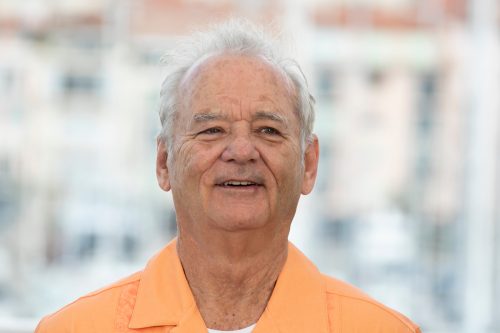
In an interview with People about her book, Davis said that she doesn’t think her claims about Murray will come as a surprise to him or to the public.
“For publicity, I saw him after we made the movie, but other than that, I haven’t seen him or spoken to him,” she explained. “I figure it’s sort of rather universally known that he could be difficult to work with. And so I don’t feel like I’m busting him in a way that will necessarily shock him. I think he knows very well the way he can behave.”
Best Life has reached out to a legal representative for Murray for comment but has not yet received a response.
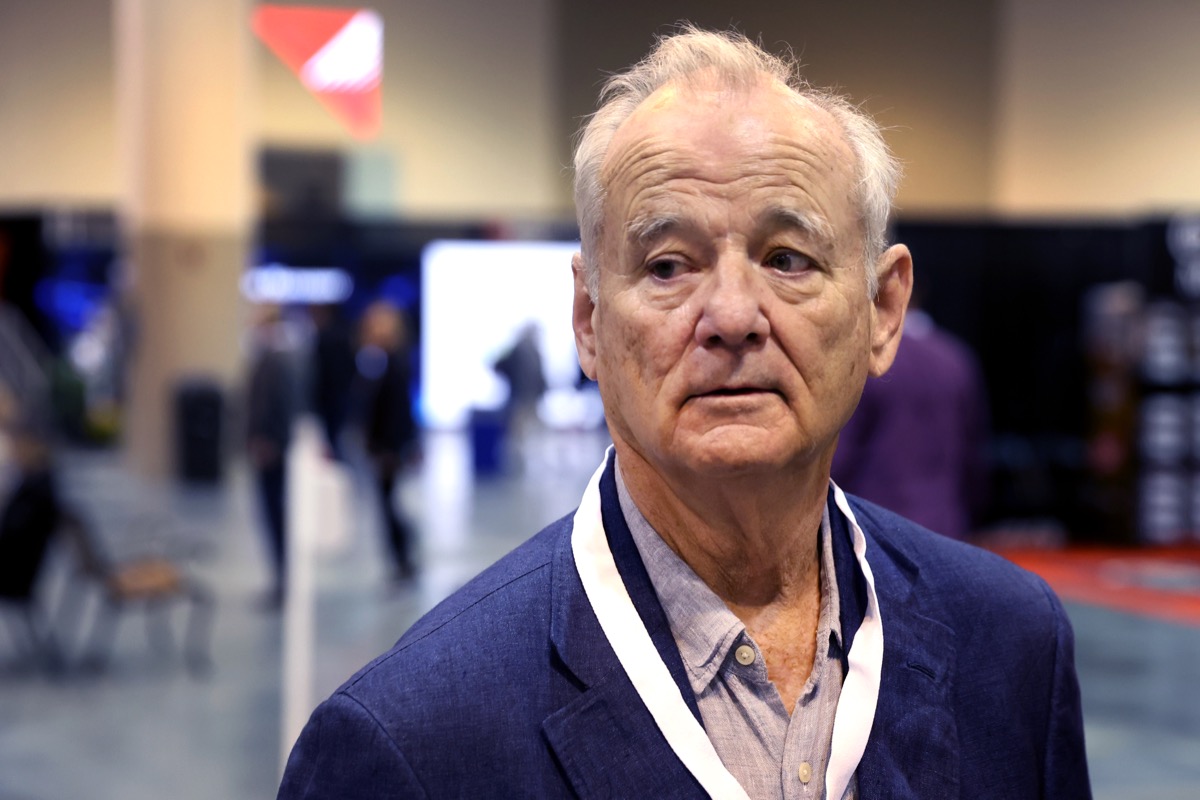
Davis mentioned that she thinks it’s “universally known” that Murray can be difficult to work with, and it’s true that other actors have made claims about his behavior.
Years later, Lucy Liu spoke out about an incident with Murray on the set of the 2000 movie Charlie’s Angels. During an appearance on the Los Angeles Times‘ Asian Enough podcast in 2020, Liu said that during shooting, Murray began to “hurl insults” at her, using “inexcusable and unacceptable” language. She didn’t go into specifics, but said, “I stood up for myself, and I don’t regret it.” As for Murray, he told The Times in 2009 (via Entertainment Weekly), “Look, I will dismiss you completely if you are unprofessional and working with me.”
More recently, in April 2022, a complaint was filed against Murray on the set of Being Mortal and production of the movie was suspended. During an interview with CNBC soon after, Murray claimed that there was a “difference of opinion” between himself and a woman working on the film. “I did something I thought was funny and it wasn’t taken that way,” he said. “As of now we are talking and we are trying to make peace with each other,” he continued. “We are both professionals, we like each others’ work, we like each other I think and if we can’t really get along and trust each other there’s no point in going further working together or making the movie as well. It’s been quite an education for me.”

